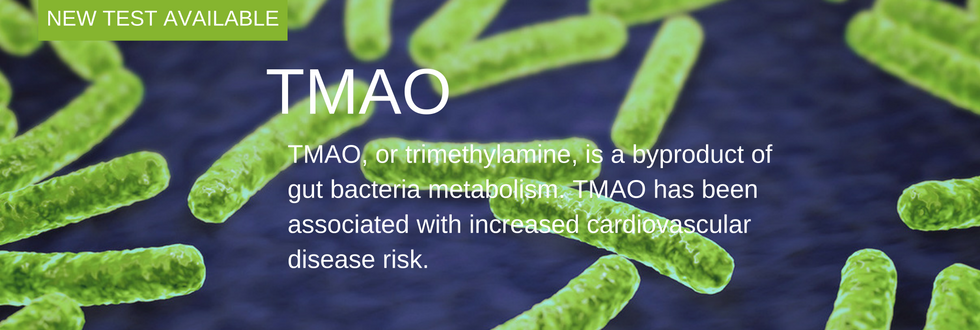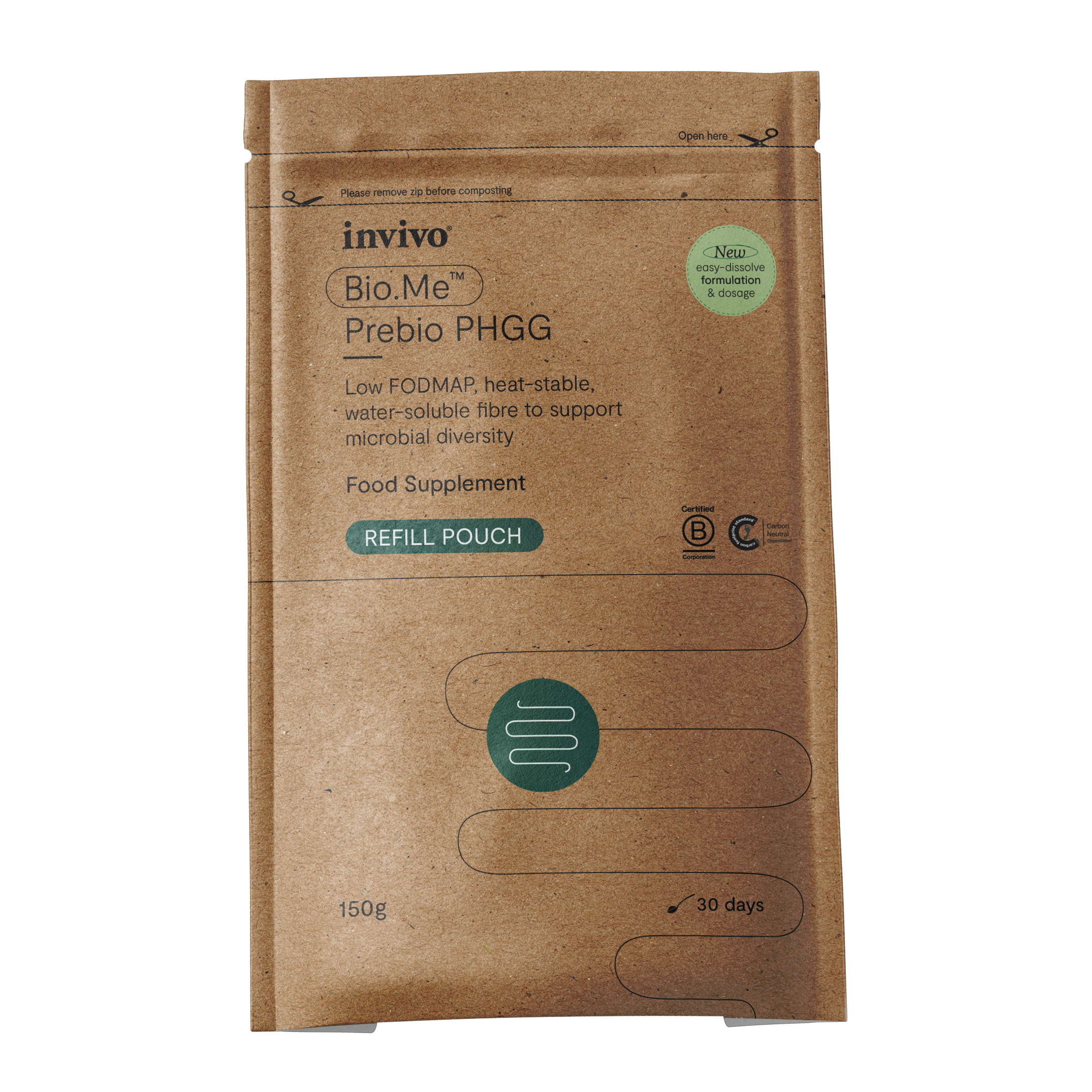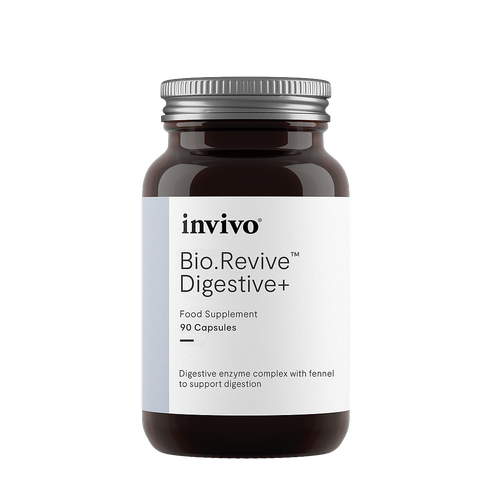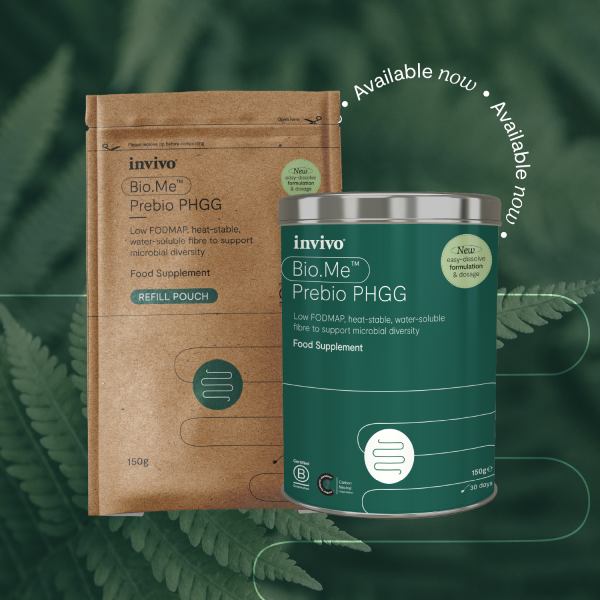Tmao Testing For Heart Attack And Stroke Risk

We are excited to be now offering the TMAO marker in our modular blood chemistry profiles with Cleveland Heart Lab.
TMAO Testing: A New Way To Assess Heart Attack And Stroke Risk
A new blood test that measures levels of TMAO (trimethylamine-N-oxide) — a metabolite derived from gut bacteria — can powerfully predict future risk for heart attack, stroke, and death in patients who appear otherwise healthy, according to pioneering Cleveland Clinic research.
The new test — now available through Cleveland HeartLab — measures blood levels of TMAO, a compound produced by the liver after intestinal bacteria digest certain nutrients: L-carnitine (found in red meat) and lecithin (found in egg yolks, meats and full-fat dairy products). Lecithin is also pumped into the intestines as a component of bile, so all individuals, regardless of diet, feed their gut microbes lecithin and have potential for elevated levels of TMAO.
“The higher someone’s level of TMAO is, the more susceptible that person is to accumulation of cholesterol in the artery wall. This increases the risk of a heart attack or stroke,” reports Stanley Hazen, MD, PhD., Vice Chair of Translational Research at the Lerner Research Institute.
Groundbreaking Answers to a Scientific Mystery
In 2011, a research team led by Dr. Hazen discovered that elevated blood levels of TMAO are linked to increased risk of heart attack, stroke, and death. Their studies showed that TMAO directly contributes to the narrowing of artery walls through plaque build-up — findings hailed by the American Heart Association and American Stroke Association in 2013 as one of the top 10 advances in heart disease and stroke science.
Two of these studies, published in New England Journal of Medicine in 2013, and Nature Medicine in 2013, found that TMAO successfully predicted future cardiac event risk, even in patients not identified through traditional risk factors or other blood tests.
To study the role of gut bacteria in forming TMAO, people were asked to eat two hard-boiled eggs (egg yolk is high in lecithin) and a capsule of synthetic heavy isotope-labeled lecithin. Shortly afterwards, their blood levels of TMAO, and to a greater extent isotope-labeled TMAO, increased. However, when the same volunteers were given a brief course of poorly absorbed oral antibiotics to suppress their gut bacteria, no TMAO was observed, indicating gut microbes play a critical role in TMAO production. In another study, the team linked a structurally similar nutrient, L-carnitine (which is abundant in red meat), to TMAO production, and heart attack and stroke risk.
“These are very exciting discoveries that help solve the mystery of why eating red meat and full-fat dairy products contribute to inflammation and development of arterial disease of in certain patients,” says Amy Doneen, DNP. ARNP, Medical Director of the Heart Attack & Stroke Prevention Center in Spokane, Washington.
New Insights into the Cause of CVD — and How to Prevent It
“In the past, saturated fats in animal-based foods were assumed to be the main culprit and people pictured cardiovascular disease [CVD] as being a plumbing problem, similar to grease clogging the pipes in a kitchen sink,” adds Dr. Doneen.
“Dr. Hazen’s work shows that TMAO contributes to CVD in two ways,” continues Dr. Doneen. “First, TMAO circulating in the blood acts as an ‘on’ switch for an inflammatory cascade that damages arteries, making it easier for cholesterol to burrow into the artery wall and form plaque. In addition, high levels of this compound in the blood reduce the body’s ability to get rid of LDL ‘bad’ cholesterol.”
Along with advancing knowledge of how CVD occurs, the team’s discoveries highlight ways the new test may be used to improve prevention of this disease. As they reported in Nature Medicine, “Our studies reveal a new pathway potentially linking dietary red meat ingestion with atherosclerosis pathogenesis. The role of gut microbiota in this pathway suggests new potential therapeutic targets for preventing CVD.”
Dr. Hazen suggests, “If a person has high levels of TMAO, it would seem prudent to intensify global prevention efforts by being more aggressive about reducing other risks. This can include weight loss, lowering blood pressure and cholesterol through lifestyle modification, and if necessary, initiation or intensification of lipid-lowering medications. Of course, eating a diet with proven cardiac risk-reducing effects, like the Mediterranean diet, is also something that an elevated TMAO level would suggest as reasonable.”
Research suggests that subjects with high TMAO should consider switching to a heart-healthy Mediterranean or plant-based diet, since adherence to the Mediterranean diet has been shown to reduce TMAO levels. Research also suggests that a more diverse diet rich in vegetables can help improve the health of the gut microbiota, as does limiting or avoiding red meat, eggs, and full-fat dairy products.
Discuss the dietary recommendations that are most appropriate and consider probiotic supplements to improve gut bacteria biodiversity.
Article by Cleveland Heartlabhttp://www.clevelandheartlab.com/blog/horizons-tmao-testing-a-new-way-to-assess-heart-attack-and-stroke-risk/



